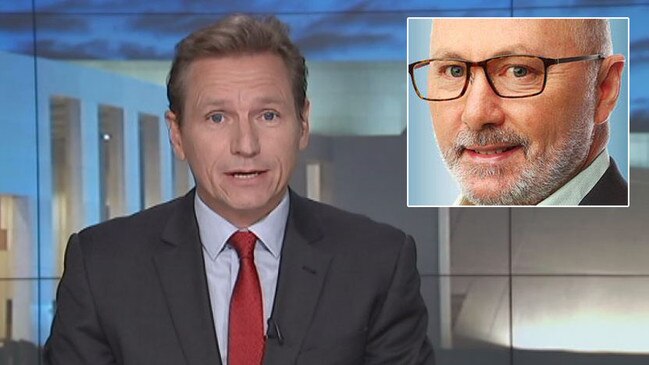
ANALYSIS
In this troublesome era of post-truth journalism, fake news and conspiracy theories, the ABC has surrendered any claim to intellectual integrity and political objectivity.
It led its television news bulletin on Tuesday night with a story that is a jaundiced concoction of rumours and factual errors purporting to suggest Malcolm Turnbull lost the prime ministership because of a media campaign led by this newspaper.
This so-called reporting by the ABC’s national political editor, Andrew Probyn, repeated in an online version, is so wide of the mark and far-fetched it would sit more neatly on the pages of the Green Left Weekly rather than on the publicly funded platforms of the national broadcaster.
The ABC’s claim is akin to what we might read from an undergraduate activist writing for a university newspaper: that Rupert Murdoch directed the dispensing of a prime minister, and through the agency of this newspaper, a clutch of strongly opinionated Sky News hosts and, bizarrely, Fairfax Media radio hosts, he had his way.
We know from public statements that Turnbull perceived some media plot against him. At least his paranoia might be understandable in his shock and disappointment, because if he doesn’t find someone else to blame, he will be left to blame himself. That serious journalists would parrot this victimhood, misleading the public in the process, is beyond the pale. This story should be the stuff of satire but it is a serious dilemma because journalists at the ABC are propagating this myth and many Australians might place store in it. At a time of heightened scepticism about the national broadcaster’s ability to adhere to its charter, this reporting deserves a thorough investigation by the ABC and the Australian Communication and Media Authority — I hope someone has the time and inclination to forward a complaint (feel free to submit this article as evidence) — because the ABC exists to inform rather than misinform.
The best way to demonstrate the deception is to take one clear and completely false statement from Probyn: “Until the end, News Corp’s The Australian had been unabashed in its advocacy for an end to the Turnbull prime ministership.”
This is not just incorrect — it is entirely the opposite of the reality. The editorial line of The Australian and The Weekend Australian consistently, repeatedly and without exception supported Turnbull’s prime ministership from its tumultuous start to its sudden end, urging him to improve his performance and warning of looming policy and political problems.
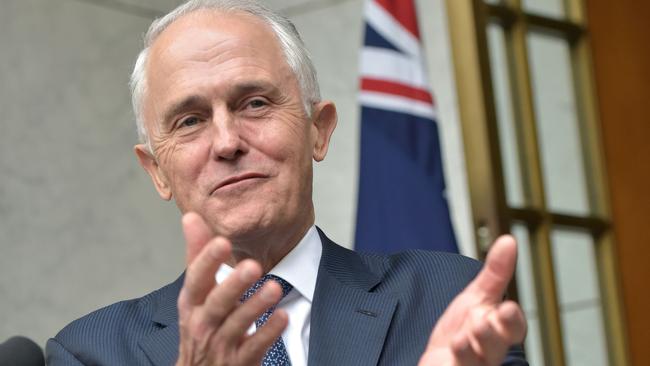
Even on the day of the final leadership showdown — Friday, August 24, after a week of spills and ultimatums when Turnbull’s control was all but dead — this newspaper did not urge his removal: “True to our mission of backing national and economic development, The Australian has argued strongly in this editorial column for the Turnbull government to succeed in its task of fiscal repair and reform … whether it is under Mr Dutton, Mr Morrison, Ms Bishop, Mr Abbott or even Mr Turnbull on reprieve, the challenge is to fight for Coalition mainstream ground rather than to haggle over Labor priorities.”
To support their theory, Probyn and the ABC will need to find an editorial from some time in the preceding three years that urged the removal of Mr Turnbull. They will not find it. From the day he seized the leadership from Tony Abbott, this newspaper’s editorials have urged him to seize the agenda and succeed. “In contrast to that of his predecessor, Mr Turnbull’s message is optimistic and uplifting,” The Australian editorialised in October 2015. “There will be tests and challenges ahead but, almost six weeks into the job, Mr Turnbull has made a solid start.”
Regular readers know this consistent tone. Even in the midst of upheaval last year, when he saw then deputy prime minister Barnaby Joyce resign and head to a by-election, Turnbull had only encouragement from this newspaper: “Mr Turnbull’s dilemma is more immediate. He must restore calm and ensure the government can get on with its work. He must focus on the issues that matter to voters, such as energy supply and affordability, and those that can stimulate economic growth, such as his business tax agenda.”
Throughout this period, my columns often made criticisms of the government and offered advice (something I once did as a Turnbull staffer) and this year they persistently warned about the looming internal conflagration of climate and energy policy. Other prominent columnists in this newspaper ranged from detached objectivity to strong supporters of the Turnbull prime ministership. Still more were antagonistic — this newspaper prides itself on a diversity of views.
Yet in direct contrast to the ABC’s characterisation, The Australian’s editorial line was always supportive. Last month, long before the leadership trauma, an editorial pleaded for better advocacy from the then prime minister and criticised his internal opponents. “Under Mr Turnbull, the Coalition seems to think all it needs to do is announce elegant policy and await the plaudits, rather than engage in brutal day-to-day advocacy. On this score, former prime minister Tony Abbott’s game-playing must be called out.”
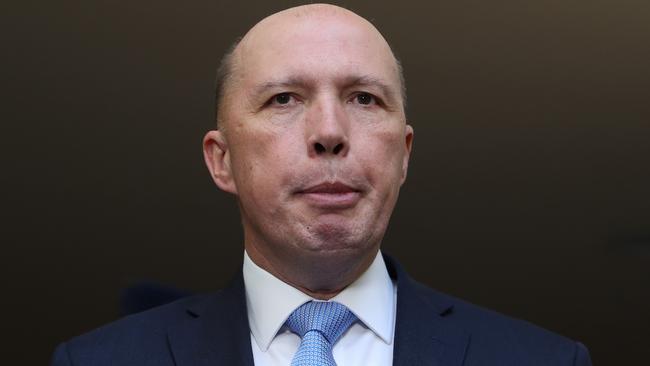
Six days before Turnbull’s resignation, The Weekend Australian opened its editorial in this way : “Malcolm Turnbull needs a circuit-breaker to rescue his national energy guarantee, revive his government’s direction and protect his leadership.”
And on the morning he unexpectedly threw open his leadership in a bid to stave off a feared challenge from Peter Dutton, the newspaper said: “Under enormous pressure publicly and privately, Malcolm Turnbull has finally, reluctantly and ham-fistedly ensured that his energy policy is not primarily dedicated to cutting emissions … what is highly questionable, however, is whether Mr Turnbull’s authority within his party, or publicly, can be recharged. A switch to Home Affairs Minister Peter Dutton would be a spectacularly risky move but is under consideration. Sadly, our nation has endured a decade of fiscal, energy and leadership delinquency from both major parties. We deserve better. But we might not get it.”
On his last full day as prime minister, while the leadership challenge was openly being organised, Turnbull would have read this in The Australian’s editorial column: “Mr Turnbull quite rightly points to job creation and recovery as signature achievements but he must strike a chord with mainstream voters and explain how his income tax cuts will underpin growth, along with the tax cuts for small and medium companies.”
I could go on. Regular readers know this, of course — indeed many have been frustrated and urged the paper to be more critical — yet it is important to place this on the record. The onus is on the ABC to demonstrate differently.
The silliness of the ABC is exposed even in the contradictions within its own story. The television and radio hosts it cites as key players in some evil plot to bring down a prime minister — Andrew Bolt, Peta Credlin, Paul Murray, Alan Jones and Ray Hadley — had all been antipathetic to Turnbull from the day he toppled Abbott. All are prominent, open and strident commentators who never varied their view over the entire period of the Turnbull prime ministership, none has regular connections to this newspaper, two work for News Corp’s main media competitor and one came into the News Corp fold last year only when Sky News changed hands.
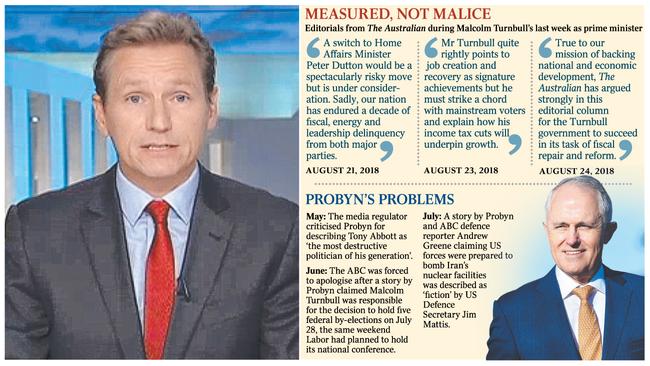
Some of Turnbull’s strongest supporters were News Corp commentators — think of Niki Savva, Peter van Onselen and Miranda Devine. And this was additional to the chorus of support for Turnbull and most of his policy predilections that consistently came from the ABC, Fairfax newspapers, a host of online publications and much of the commercial electronic media.
Like them, many journalists on this newspaper, Sky News and other News Corp platforms continue to rail against the leadership change and predict dire consequences will unfold from it.
Probyn’s ABC story also published this third-hand account of alleged private comments by Murdoch to Turnbull on the eve of the challenge — “The billionaire told him he was not driving any campaign against him but said he was not responsible for what ‘Boris’ might be doing. By Boris, he meant Paul Whittaker, the editor-in-chief of The Australian.”
So even according to the ABC’s own evidence (which is remarkably similar to earlier musings by Joe Aston in The Australian Financial Review), the editor of The Australian does not take instructions on such matters.
It is all a bit pathetic that anyone should have to refute this level of so-called journalism, but it seems the hysterical response from left-of-centre media in the US to Donald Trump’s victory has started to take hold here. At times like these, nothing is more necessary than cool heads and a calm regard for the facts.
The Liberal leadership changed because a majority of Liberal Party MPs voted for change, of course. They were driven to that decision primarily because Turnbull tried to deliver the same outcome that led to his demise in 2009 — a climate and energy policy that would be acceptable to both Labor and his own party room.
To blame the media that warned of the impending peril is really just a way for the ABC to create a diversion from the embarrassing fact that it could see none of this coming.
Like many other journalists, the ABC’s political analysts had left their audiences in the dark.
Indeed, the ABC is still yet to explain these events to its audience, offering jejune conspiracy theories instead. You have to wonder if anyone is in charge at the national broadcaster.




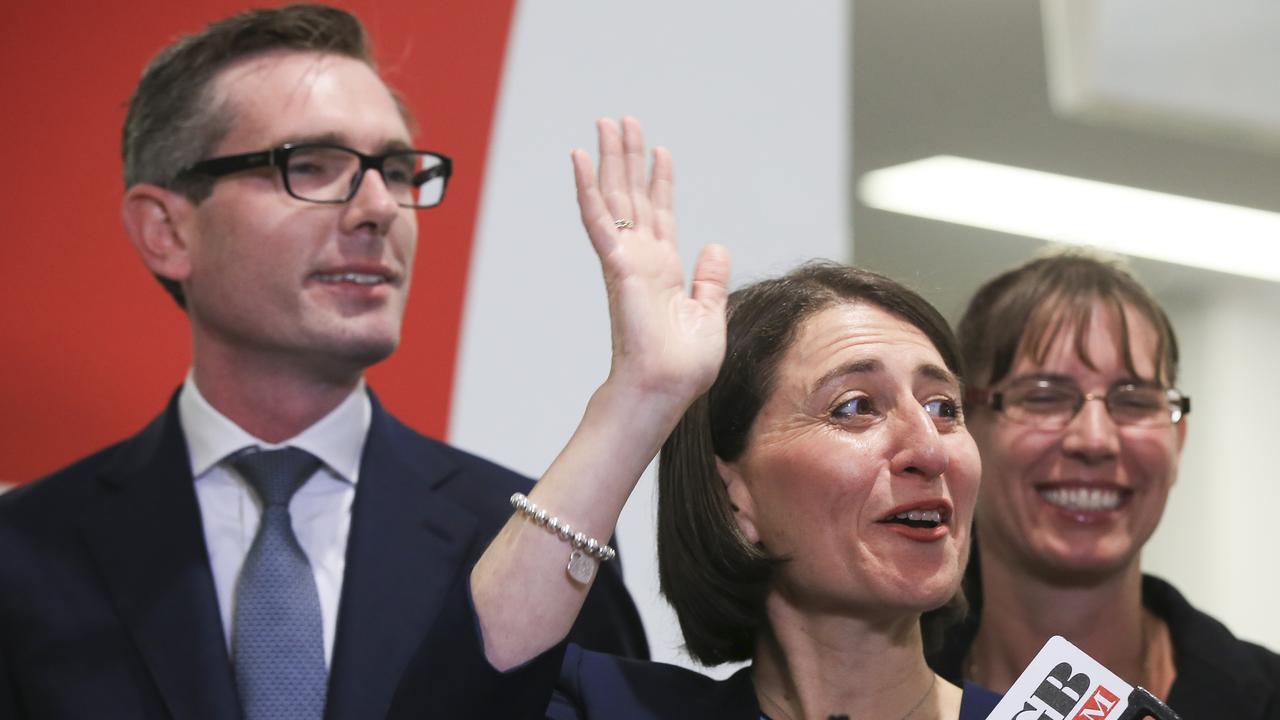
To join the conversation, please log in. Don't have an account? Register
Join the conversation, you are commenting as Logout